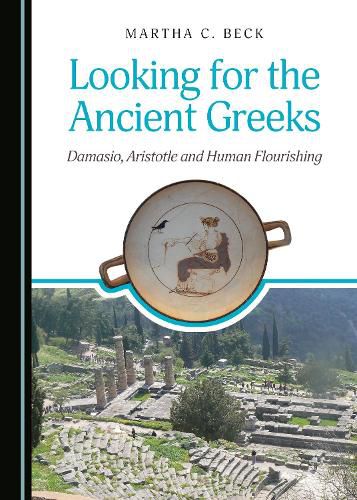Readings Newsletter
Become a Readings Member to make your shopping experience even easier.
Sign in or sign up for free!
You’re not far away from qualifying for FREE standard shipping within Australia
You’ve qualified for FREE standard shipping within Australia
The cart is loading…






This book is a response to Antonio Damasio’s Looking for Spinoza: Joy, Sorrow and the Feeling Brain. Damasio, a prominent neuroscientist, begins by explaining what the latest discoveries in the neurosciences tell us about human psychology. He rejects the two prominent models of human psychology since the Western Enlightenment, the blank slate and dualism. Instead, says Damasio, we now know that the brain and body are completely integrated through a complex system of neural maps.Damasio’s recognition of the complete unity of body, brain and mind leads him to the conclusion that we have to develop ideas and ideas of ideas and use them to reform our neural maps. This book presents Damasio’s own ideas about the most serious questions in life that we ought to use to reform ourselves and our societies, including homeostasis; spirituality; feelings; suffering and death; the value of religious traditions; and the value of the philosophical path to God among others.The book presents additional positions on the same serious questions from perspectives that it is hoped Damasio will consider adding to or, in some cases, replacing, his position. Most of the book is a discussion of many aspects of Ancient Greek culture, showing how it developed into a complex cultural system that aimed to create exactly the kind of integrated system of neural maps that Damasio claims is so important for us today. As such, this book strives to contribute to our collective need to reform our system of education based on our new understanding of the nature of the human psyche.
$9.00 standard shipping within Australia
FREE standard shipping within Australia for orders over $100.00
Express & International shipping calculated at checkout
This book is a response to Antonio Damasio’s Looking for Spinoza: Joy, Sorrow and the Feeling Brain. Damasio, a prominent neuroscientist, begins by explaining what the latest discoveries in the neurosciences tell us about human psychology. He rejects the two prominent models of human psychology since the Western Enlightenment, the blank slate and dualism. Instead, says Damasio, we now know that the brain and body are completely integrated through a complex system of neural maps.Damasio’s recognition of the complete unity of body, brain and mind leads him to the conclusion that we have to develop ideas and ideas of ideas and use them to reform our neural maps. This book presents Damasio’s own ideas about the most serious questions in life that we ought to use to reform ourselves and our societies, including homeostasis; spirituality; feelings; suffering and death; the value of religious traditions; and the value of the philosophical path to God among others.The book presents additional positions on the same serious questions from perspectives that it is hoped Damasio will consider adding to or, in some cases, replacing, his position. Most of the book is a discussion of many aspects of Ancient Greek culture, showing how it developed into a complex cultural system that aimed to create exactly the kind of integrated system of neural maps that Damasio claims is so important for us today. As such, this book strives to contribute to our collective need to reform our system of education based on our new understanding of the nature of the human psyche.